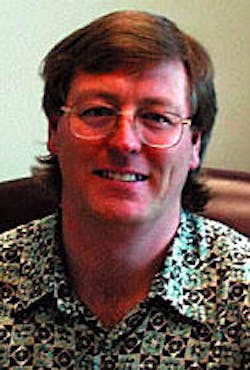OGJ Top 10 Independents-No. 3: Denbury Resources sustains growth through CO2 flood, workovers
Plano, Tex.-based Denbury Resources Inc. attributes much of its sustained earnings growth to a niche carbon dioxide flood enhanced oil recovery project it operates at Little Creek field in southwestern Mississippi. The company owns both the source of the CO2 at Jackson Dome, Miss., and an accompanying 183-mile pipeline. Denbury is the largest producer of oil and natural gas in Mississippi, said Denbury CEO Gareth Roberts.
Currently, the independent produces 90 MMcfd of CO2, 35 MMcfd of which it sells to commercial customers and the rest it injects into Little Creek field and into another field in Mississippi.
"These areas contain 80-100 million bbl of additional reserves from CO2 alone," Roberts noted. "Our company has [reserves of] about 106 million boe as of midyear, so this nearly doubles the reserves of the company with just one play."
Operations
Denbury's current oil and gas production is split at 50:50, while its reserves are 75:25, oil vs. gas.
Roberts said that reserves at Little Creek field can be developed for about $3/bbl. "The operating costs are higher than in typical production because you have to pump CO2 into the ground, recover it, recompress it, and pump it back into the ground," he explained.
Denbury's economic break-even on the Little Creek play would be $12.75/bbl (New York Mercantile Exchange near-month futures price), Roberts said. "At $18.50/bbl, we have a return on investment of 2.92:1. This is comparable to some of the other big developments in the US that involve coalbed methane-very similar," Roberts observed.
Besides its holdings in Mississippi, Denbury owns property in Louisiana, both onshore and offshore. Roberts reckons that the company earns almost as much through development projects as through acquisitions.
"We have a very balanced program," Roberts stated. "We rework old fields, which is pretty much a growing business in the US, because all the fields are old, and trying to find new reserves in new areas is actually very difficult," he said. "There are probably 10-15% more reserves left in these types of fields that we go after, and if the field was originally quite large, then the little extra can be quite significant."
In Louisiana, for example, Roberts said that there could be as much as 1 billion bbl of incremental oil that might be recovered through the use of CO2 flooding, making Louisiana the "Arctic National Wildlife Refuge of the south," he said.
Success also comes from being focused on core areas of operations, Roberts said. "You have to be a geological expert on the area that you're working, and that requires staying in that area for several years. We've been able to achieve balance of gas vs. oil production and of lower-risk development and higher-risk exploration without straying too far from the same geology. We don't need to go up into the Rocky Mountains or even overseas-we've been able to grow reserves, and we do it by being experts in the area that we work," he said.
Challenges
One of the biggest challenges facing independents today, Roberts said, is increasing production. "Our organic production growth is probably somewhere between 10% and 20%, and it's one of the highest," he noted. "Real production growth is very hard to find."
Roberts cited companies such as the recently acquired Mitchell Energy & Development Corp. and Barrett Resources Inc. as examples of firms that experienced real production growth, "and they've all attracted buyers," he said.
"A lot of the large independents really aren't growing their core production without acquisition, and this is a problem. And a lot of the bigger independents are going to be throwing off more cash than they know what to do with, and they just don't have opportunities to spend that money drilling," Roberts said.
Denbury Resources Inc.
CEO Gareth Roberts
"We don't need to go up into the Rocky Mountains or even overseas-we've been able to grow reserves, and we do it by being experts in the area that we work."

